|
In a recent Fox News interview, presidential candidate Nikki Haley drew a lot of raspberries when she called online anonymous posting a “national security threat.” She proposed that social media platforms require identity verification for all users to stop foreign disinformation campaigns.
Nikki Haley is legitimately concerned with real online dangers. But such a requirement would chill speech, stifle the free flow of ideas and information, harm journalists and their sources, and land several American Founders in internet jail. Anonymity serves as a shield for individuals to freely express opinions without fear of retribution or persecution. For marginalized communities, victims of abuse, or those living under oppressive regimes, online anonymity can be a lifeline, allowing them to voice their concerns and opinions without risking personal safety. Banning anonymity would silence these voices. Furthermore, this proposal fails to acknowledge the pivotal role played by anonymous sources in investigative journalism. Banning online anonymity could place an insurmountable barrier for journalists to protect their sources, impeding the public's right to know about crucial matters of public interest. Platforms that allow anonymity often become safe spaces for open discussions on sensitive topics, mental health, or personal struggles. Removing this protective veil might discourage individuals from seeking help or sharing their experiences, ultimately stifling lifesaving conversations. Rather than enhancing security, enforced identification online could create an environment ripe for censorship and surveillance, where individuals feel compelled to self-censor out of fear. It may also pave the way for increased government intrusion into private online spaces, eroding the very freedoms the First Amendment aims to protect. Anonymity plays a vital role in many areas of American life, not just online speech. Since the landmark Supreme Court ruling in 1958, NAACP v. Alabama, the anonymity of donors has been recognized as critical to the protection of speech and the flourishing of the First Amendment. Perhaps that is why civil liberties groups on both the left and right have united to challenge laws that seek to expose donors, given such laws’ history with coercion, discrimination, and surveillance. Perhaps most important of all, this great country and our freedoms might not exist if not for anonymity. Friends of history will know that America’s Founders and pivotal figures made generous use of anonymity. Alexander Hamilton, John Jay, and James Madison wrote under the pseudonym “Publius” when they drafted The Federalist Papers. So too did their opponents, who published the Anti-Federalist Papers anonymously under multiple pseudonyms like “Brutus,” “Cato,” and “Federalist Farmer.” Thomas Paine published Common Sense anonymously. Less monumental in scope, Benjamin Franklin wrote under the name “Mrs. Silence Dogood” for the New-England Courant when his brother, the founder and publisher of the newspaper, refused to publish his letters under Benjamin’s real name. Were it not for anonymity, American history would look very different. To be sure, online anonymity has an ugly side. Social media platforms such as Facebook and Linked In have a First Amendment right to restrict anonymity and do so for sound business and public policy reasons. A personal attack or bombastic ideological statement without an identifiable author, however, inherently lacks credibility. We believe Americans have become savvier in their online judgments about online graffito than many experts believe. Instead of advocating for the elimination of anonymity, we should focus instead on promoting responsible online behavior, fostering digital literacy, and developing mechanisms that balance security concerns with the preservation of free speech rights. We’ve said it before – it would be a pointless victory to combat Russian disinformation if we become Russia. TIME FOR ‘UNFETTERED COMPETITION’ “School choice is sweeping the nation,” writes Harvard economics professor Roland Fryer in a recent piece for the Wall Street Journal. “But school choice as we know it won’t fix the American education system.” What is needed, he argues, is “unfettered competition” instead of the piecemeal, “half a loaf” approach with which we are currently saddled.
Fryer alludes to the stunning groundswell of support for school choice in recent years. Since 2021, ten states have passed universal choice measures. It’s a positive development for the world’s most prosperous and powerful nation, which incongruously lags behind many of its peer and non-peer competitors in scholastic outcomes. As Fryer points out, the United States came in 36th in math and 13th in reading in the 2018 Program for International Student Assessment. It’s hardly an adequate result for a nation as bold and innovative as our own. Despite some encouraging signs when it comes to school choice, Fryer argues that our current system remains “more patchwork than panacea.” Against the backdrop of standardized and homogenous public-school curricula, a full-fledged embrace of the free market is necessary if we are to fully unlock our young people’s potential. Protect The 1st believes school choice supports the full expression of the First Amendment. The First Amendment’s guarantees of free speech and the free exercise of religion must include room for parents to choose schools that reflect their beliefs. Doing so will have the added, bonus effect of alleviating some of the non-stop controversies that so dominate the educational discourse of late. Consider the endless arguments over textbooks and curricula, from the banning of literary classics like 1984 in Iowa to the “stench of animus” towards religious student groups in California. Consider the persistent attempts to incorporate ideological instruction for children as young as four years old. With public schools having a monopoly on public education dollars, the only option for many who can’t afford private schools is to accept what’s dished out or simply pick up and move. More choice means more freedom for parents to guide their children’s education by selecting schools that align with their values, or offer education of superior quality. There has to be a better way, and Fryer is correct that our current Balkanized approach won’t cut it. Advocates must be bolder, he says, submitting that if “we can fully commit to free market principles in education, we can create an education system that unlocks the talents of every student in our lifetimes.” One way to do that is through education savings accounts, which he writes “allow parents to channel public funds to a variety of educational services, from private-school tuition and microschools to tutoring and online courses.” By funding ESAs at a level comparable to public schools, you give parents real purchasing power. Competition and innovation will result. That is the true underlying principle upon which school choice operates. Want to send your child to a school that meets all the state requirements but is also a Christian, Jewish, or Muslim school? Want to send your kids to a school with a great literature program? Or one with more of an emphasis on STEM? School choice does that, but first you have to end the public monopoly on education for everyone to have those choices. And we won’t get there unless advocates double down. That a free press is integral to free speech was obvious to the founders, who guaranteed both in the First Amendment. But is it so obvious today? Under both Democratic and Republican presidents, federal investigators have helped themselves to the private records of the AP, CNN, The Washington Post, and The New York Times, as well as those of activist journalists on both the left and right.
In Kansas, police raided a small-town newspaper over a minor story involving public records and a DUI. The police confiscated newsroom computers containing reporters’ notes and source materials and putting the very existence of the paper at risk. Fortunately, Kansas has a state press shield law that grants media the right to keep source identities confidential. Journalists enjoy no such protections at the federal level. It is not clear what recourse, for example, Tampa-based journalist Tim Burke has after the FBI stormed his home in May, confiscating his computer, cellphone, and information on multiple stories and their sources. If trust is the coin of the realm, then the federal government’s coinage is debased. The Pew Research Center reports that only 2 percent of Americans trust the government in Washington to do what is right “just about always.” Only 19 percent believe the government acts correctly “most of the time.” To be sure, cynicism about government results from spectacular failures of competent governance. The cynicism also reflects the loudly proclaimed belief by political leaders that the other party, once in control, will weaponize investigations and prosecutions, while thumbing the scale for its friends and allies. While these fears are sometimes overstated, the solution is not to weaponize government for one side against the other, but to hold government accountable to everyone. One of the best ways to restore trust is to protect the freedom of journalists to do their jobs. From Watergate to the Pentagon papers, to the depredations of Harvey Weinstein, to the roiling controversies of our day, journalists’ revelations have been enabled by whistleblowers, brave men and women willing to risk it all to reveal wrongdoing. All states save Wyoming offer greater journalist protections than the federal government. South Carolina, to cite just one of 49 examples, enacted a press shield law in 1993 to protect journalists from being compelled to divulge their sources. The preface to the law boldly states: “The General Assembly finds that it is vital in a democratic society that the public have an unrestricted flow of information on matters of concern to the public and that the threat of compelled testimony … interferes with the free flow of information to the public.” The good news is that as events spin into overdrive in the nation’s capitol, congressional leaders in both parties are coming to see the wisdom of following South Carolina’s example. They are ready to temper government actions to protect journalists and press freedom from overweening federal prosecutors by passing a federal press shield law, the Protect Reporters from Exploitive State Spying (PRESS) Act. The PRESS Act protects both journalists and their sources. The latter is important, because whistleblowers need the assurance that the reporter with whom they speak in confidence cannot be compelled to betray their trust. The PRESS Act offers that promise by establishing a federal statutory privilege shielding journalists from being compelled to reveal confidential sources. It would also block attempts to compel disclosure of account information from communications services used by reporters. In 2007 and again in 2009 as a member of the House, Protect The 1st Senior Policy Advisor Rick Boucher was the primary author of the forerunner to the PRESS Act. He saw it pass the House twice with large bipartisan majorities, and then die – as so many good bills do – in the Senate. This time, the stars seem to be aligning in the Senate for passage of the PRESS Act. Lindsay Graham, South Carolina’s senior senator and the Ranking Member of the Judiciary Committee, is cosponsoring the measure. Sen. Graham joins a strong bipartisan team that includes Senate Judiciary Chairman Dick Durbin (D-IL), Sens. Ron Wyden (R-OR) and Mike Lee (R-UT). The PRESS Act also enjoys strong bipartisan leadership in the House from Rep. Kevin Kiley (R-CA) and Rep. Jamie Raskin (D-MD). House support ranges from conservative Rep. Jim Jordan (R-OH), Chairman of the House Judiciary Committee, to liberals like former committee Chairman Jerry Nadler (D-NY). During the last Congress, the House approved the PRESS Act by a bipartisan, unanimous voice vote. The acceptance of press shield laws by 49 states demonstrates sweeping public support for freedom of the press. At a time when trust is scarce, wouldn’t it be refreshing to see national leaders in both parties pass a popular measure that enhances a fundamental freedom and holds government accountable? Across America, from small towns to Washington, D.C., officials are misusing their authority to punish journalists.
In April, Protect The 1st reported that on at least two occasions, agents at ICE used a legal tool meant to aid in criminal investigations to pressure news organizations into revealing information about their sources. In May, we reported that the FBI raided the home of a journalist, seizing his computer, hard drives, and cellphone, after he published embarrassing outtakes of a Fox News interview – which had already been posted online. In August, Protect The 1st reported on the death of an elderly publisher in rural Kansas shortly after local police raided her home. In November, we reported on an Alabama district attorney who arrested a publisher and a reporter for reporting on leaks from a grand jury about the mishandling of Covid funds. Also this month we reported on the “ticketing” of a local journalist by Calumet City, Illinois, for having the temerity to send 14 emails over a nine-day period to city officials seeking comment on local flooding. The First Amendment is clear, but the trend against it continues in the wrong direction, with such incidents piling up recently. The question is: why? We believe these clumsy attempts to punish the press can only be the result of the poor civics education of these officials in their youth. It also reflects an increasing appetite by politicians of all stripes to weaponize the law. There is, fortunately, a bulwark against such local abuses. Forty-nine states have passed press shield laws that protect journalists and their sources. Yet Congress has not enacted a national shield law to protect reporters from federal prosecutors and courts. The Protect Reporters from Exploitive State Spying (PRESS) Act would limit the ability of prosecutors to expose the sources and notes of journalists in federal court. The PRESS Act passed through the House Judiciary Committee to the full House by a unanimous 23-0 vote in July. The PRESS Act would have made a difference in the case of CBS News senior correspondent Catherine Herridge who, earlier this year, was ordered by a judge for the U.S. District Court for the District of Columbia to reveal the identity of a confidential source or sources she used for a series of 2017 stories published while she worked at Fox News. Her stories covered Chinese-American scientist Yanping Chen, subject of a federal counterintelligence probe. Chen subpoenaed Herridge and Fox News, with the hope of unmasking the source(s) for the stories. Herridge has since refused to reveal her source(s), and Chen’s lawyers are asking the judge to hold the journalist in contempt of court. The Herridge case is all the more reason for a federal shield law in the form of the PRESS Act. No federal legislation, however, can change the dysfunctional, constitutionally illiterate, and illegal acts by government officials against reporters. That is not a matter of law, but of culture and education. Press freedom is strong only when people and the powers that be understand it and respect it. The Academic Freedom Alliance recently released a guidance statement regarding campus protests over the Israeli-Gaza war. It’s a stirring call for a recommitment to basic principles of free speech at colleges and universities. It’s also a reminder to differentiate between private speech by professors in their personal capacities versus efforts by some to politicize the classroom.
Reposted in full by the Volokh Conspiracy blog, the statement reads (in part): “Professors must enjoy the liberty to discuss and even promote controversial ideas and to present controversial materials to students in their classes. Professors have an obligation, however, not to take advantage of their captive audience of students by introducing ideas or materials that are not germane to the subject matter of their class. Likewise, professors have a responsibility not to exploit their privileged position to attempt to indoctrinate students or to subject them to political or ideological litmus tests or pressures in their classroom assignments. Nor do professors have a right to compromise the education of their students by conducting their classes in a manner designed simply to advance their favored political causes. Universities must resist calls to censor what is taught in classrooms, but they must also ensure that classes are used for proper educational purposes. “Professors, like other members of the campus community, should enjoy the freedom to speak and act as citizens. When speaking in public in their personal capacity, professors may give voice to controversial and even extreme political and social opinions that others might find offensive or disturbing. When professors at American universities speak in public in a manner that is lawful under the First Amendment, universities should stand behind their right to express such views. Universities should insist that professors, as well as other members of the campus community, adhere to content-neutral regulations regarding the time, place, and manner of public speech on campus, but universities must strive to apply those rules in an even-handed and consistent manner regardless of the substantive views of those expressing themselves. Universities should refrain from punishing members of the faculty simply because some think their private political speech is intemperate, uncivil, dishonest, or disrespectful. Professors should be judged and held accountable for their professional speech and conduct, not for their political views.” It's hard to disagree with such a cogent defense of free expression on campus, which indeed is the place where difficult subjects should be respectfully discussed and debated. But we do. We agree that it is important, as the statement points out, to consider the fora when adjudicating the appropriateness of speech content by professors. On the other hand, we must recognize that many American colleges and universities are private institutions with their own speech rights. Unless they are substantially funded by the public, schools are perfectly justified in reacting reasonably to the speech of their employees. Case in point: When Cornell University history professor Russell Rickford told a group of pro-Palestinian demonstrators that he was “exhilarated” by the Oct. 7 attacks against Israel, he faced criticism from the administration, a petition drive to fire him, and demands from Sen. Kirsten Gillibrand (D-NY) for his termination. Instead, Rickford received permission to take a leave of absence. But make no mistake, Cornell would have been well within its rights to have fired Rickford. There will always be a tension between the personal speech rights of a professor and the right of free association at a public university. Given the different status of public and private universities, it is impossible to describe a neat methodology for dealing with incendiary speech – just as it is difficult to legislate academic outcomes. Consider Florida’s attempt to implement the Stop WOKE Act, which sought to ban schools and companies from promoting ideas of race- or sex-based blame to “privileged” students and employees. To be fair, there is no lack of idiotic ideology on campus and in the corporation. But that law, had it gone into effect, would have significantly chilled speech by professors within the classrooms, creating fear among anyone that so much as touched on race in the course of a lesson plan. In enjoining the Stop WOKE Act, Chief U.S. District Judge Mark Walker called it outright Orwellian, noting that the law “officially bans professors from expressing disfavored viewpoints in university classrooms while permitting unfettered expression of the opposite viewpoints.” The law remains blocked as of this writing. It is critical that we have such baseline principles for the preservation of free inquiry and academic debate on campus. What such principles won’t do is negate the free speech and associational rights of private institutions. Nor will they inoculate a public university against the invisible hand of the higher education marketplace, which may well withdraw donor support and student applications because of vitriolic commentary, even when professors speak in a private capacity. In the private sector, employers can hold employees responsible for what they say. Yes, they can fire them for it. And that’s okay. On either side of the abortion issue, advocates and legislators have become so entrenched that they often lose sight of the constitutional forest for the trees. Consider two cases out of Colorado and New York that illustrate the lengths to which some will go to restrict speech about any choice they don’t like.
In April, we wrote about a Colorado law restricting the ability of physicians to discuss a treatment for women who are having second thoughts about a chemically induced abortion. That law limits prescribing progesterone, a popular method of reversing a chemical abortion. It forbids physicians from even informing pregnant women that such a treatment exists. It’s essentially the inverse of legislative proposals in red states that would permit civil actions against anyone informing women about abortion options in other states. At Protect The 1st, we oppose any effort to gag physicians and other health care providers from informing patients about treatment options – particularly when it conflicts with closely held religious beliefs. Such was the case with Bella Health, a Catholic healthcare clinic in Colorado that offers life-affirming care to pregnant women (among others). That includes offering progesterone. With help from the Becket Fund, Bella Health sued the State of Colorado in federal court. Bella Health has now been granted a preliminary injunction barring implementation of the law and allowing the clinic to continue its work. U.S. District Court Judge Daniel D. Domenico wrote: “There is no question whether [the law] burdens Bella Health’s free exercise of religion. It does. Bella Health considers it a religious obligation to provide treatment for pregnant mothers and to protect unborn life if the mother seeks to stop or reverse an abortion.” Domenico further criticized the state for failing to even attempt to make the case for a compelling government interest, which is necessary for overcoming a strict scrutiny review. The fact is, which Domenico seemingly recognized, the law was a nakedly partisan response to recent developments on the national stage – an effort to punish those on the other side of this contentious issue by trampling over their First Amendment rights. In a similar case out of New York, the state passed a law in 2022 authorizing the New York State Department of Health to conduct a study on “limited service pregnancy centers on the ability of women to obtain accurate, non-coercive health care information and timely access to a comprehensive range of reproductive and sexual health care services.” (“Limited service pregnancy” centers is how the state describes clinics that do not offer abortion services.) The statute further permitted the state to demand “data and information” from any center that does not offer abortion services or referrals. That included Sisters of Life, a Catholic community of nuns who offer holistic care for women in crisis, often providing housing, maternity clothes, baby formula, and other necessities. Sisters of Life sued to overturn and enjoin enforcement of the law, rightfully concerned about the vast amount of sensitive personal data that would have be turned over – including, according to the complaint, “organizational funding; membership in umbrella organizations; services provided and most frequently sought; the number of women who access services, the geographic regions in which each woman resides, and ‘basic demographic information about each woman, including race, age, and marital status.’” In more good news for the First Amendment, the Sisters dropped their lawsuit after reaching an agreement with the state stipulating that the state will not “take any enforcement action of any kind against Plaintiff based on Plaintiff’s nonresponse to or noncompliance with any survey, document request, or information request of any kind authorized by or issued by Defendant.” It’s a total surrender on the part of New York, which seems largely embarrassed by the whole ordeal. State attorneys should be embarrassed. Regardless of your views on abortion, passing coercive laws to shut down speech and punish religious organizations makes a farce of the First Amendment. And while we should celebrate these victories, we must also remember that such threats to our foundational rights remain ever present – coming from the right as well as the left. The Religious Freedom Restoration Act of 1993 (RFRA) turns 30 years old tomorrow. RFRA was a landmark bill signed into federal law by President Bill Clinton that ensures religious freedom is protected from government overreach. Thirty years on, RFRA has become a cornerstone of religious freedom, putting statutory muscle behind the promise of the free exercise of religion in the First Amendment.
Congress drafted RFRA in response to the Supreme Court’s decision in 1990 in Employment Division v. Smith, which held that government can burden religious exercise so long as it uses a neutral, generally applicable law to do so. This sounds reasonable but it had the practical effect of permitting overweening rules and regulations to throttle religious practices, from Sikhs wanting to carry a kirtan in public, to U.S. Navy sailors wishing to wear a kippah, to Native Americans wishing to worship at sites that have been held sacred for hundreds of years. RFRA has dramatically expanded the latitude for religious freedom for this increasingly diverse American society. Lori Windham, Vice President and Senior Counsel at the Becket Fund, writes that “although some predicted that RFRA’s standard would be a recipe for anarchy, it has instead proven that religious liberty works remarkably well in practice.” She adds that “RFRA has served as a bedrock protection for religious groups ranging from Apache feather dancers to Catholic religious sisters.” Although RFRA applies to all faiths and creeds, it has been essential in preserving the rights of religious minorities by giving them their “day in court.” As Becket argues, despite assertions that RFRA “opens the floodgates … for imposing Christian values in the areas of abortion, contraception, and gay rights,” RFRA primarily benefits these minorities. According to Becket, a comprehensive empirical study of religious freedom cases from 2012 to 2017 reveals that religious minorities are significantly overrepresented in religious freedom cases. The federal RFRA has been so successful and popular that, in recent years, half of all states have passed their own versions of RFRA to strengthen the legal protections afforded to religious beliefs and practices within their borders. With North Dakota and West Virginia joining the list of states with RFRA laws earlier this year, twenty-five states now have their own form of RFRA. State courts have adopted this standard in nine additional states. Religious expression is not some isolated activity which we schedule for certain parts of the week. It is fundamental to our identity, which is why it is included among our first freedoms. The growth of state RFRAs in the last thirty years is a testament to the bipartisan interest in the vitality of religious liberty. As Protect The 1st blows a birthday candle, we wish that perhaps thirty years from now there will be a RFRA in every state. On Thursday, November 16th at 12:00 pm ET, the Orrin G. Hatch Foundation will host a panel on “Thirty Years of the Religious Freedom Restoration Act: Reflecting on the Past, Looking to the Future.” We urge our readers to attend online. Most reporters aspire to superlatives like “dogged,” “tenacious,” and “persistent.” In Calumet City, Illinois, such traits are seen by some as a liability. In fact, they can you ticketed. That’s what happened recently to Daily Southtown reporter Hank Sanders, who was cited for “interference/hampering of city employees” after sending 14 emails over a nine-day span to a handful of city officials seeking comment about flooding in the small town.
Sanders had previously reported that outside consultants told Calumet City officials that their stormwater infrastructure was in poor condition prior to historic flooding that occurred in September. Subsequently, Sanders continued his efforts to get to the bottom of the story – which apparently did not sit well with city officials like Mayor Thaddeus Jones, who was listed as a complainant on Sanders’ citation. Likewise, Sanders’ persecution at the hands of smalltown city officials didn’t sit well with the editorial board of the Chicago Tribune (which shares a parent company with the Daily Southtown). In an editorial, they called the city’s behavior “clownish.” Executive editor Mitch Pugh went a bit further: “[Calumet City’s actions] represent a continued assault on journalists who, like Hank, are guilty of nothing more than engaging in the practice of journalism. From places like Alabama to Kansas to Illinois, it appears public officials have become emboldened to take actions that our society once viewed as un-American. Unfortunately, in our current political climate, uneducated buffoonery has become a virtue, not a liability, but the Tribune will vigorously stand up for Hank’s right to do his job.” There is no room to be dismissive of this event. It is yet another recent example in a worrying trend in small-town America where power-drunk officials attempt to punish reporters for committing the act of journalism. One instance to which Pugh refers we recently wrote about: a small town publisher and reporter were arrested in Alabama for reporting on a grand jury leak about the alleged mishandling of COVID relief funds in a local school district. The other we wrote about in August – police in Kansas raided the Marion County Record in an effort to track down an informant who revealed information about a local restauranteur’s DUI. In that instance, the paper’s 98-year-old co-owner died a day after her home was raided. The Calumet City controversy has a happier ending. On Nov. 6, the city attorney – who seems roundly embarrassed by the whole ordeal – sent a letter to Tribune lawyers dropping the citation. And the Tribune itself seems to be enjoying a deserved bout of schadenfreude over the city’s capitulation. The trend line, however, is declining respect for the First Amendment and a free press. Reporters must feel free to pursue stories of public interest without fear of reprisal. Sanders himself perhaps put it best: “I will continue to be reaching out to the correct department or employee for comment when I want a comment from that department or employee. To do otherwise is unethical.” There is something poignant and noble about the ACLU’s defense of the right to engage in antisemitic speech. From its founding through the civil rights era, ACLU has been led by many lawyers, advocates, and donors who were and are Jewish. They and their families would be the first ones to perish under the regimes of the people whose constitutional right to speak are defended by the ACLU.
The ACLU in 1978 famously defended the right of neo-Nazis to parade though Skokie, Illinois, where many Holocaust survivors were living. Now former ACLU president Nadine Strossen and social psychologist Pamela Paresky – both proudly Jewish – are taking a stand against efforts to use the law to punish offensive remarks about the recent mass slaughter in Southern Israel. In particular, they criticize a proposal from Sen. Tom Cotton (R-AR) to empower the Department of Homeland Security to pull student visas and deport any foreign national on American soil who expresses support for Hamas. They write that such a policy would fly in the face of the First Amendment, which Supreme Court precedents extend to foreign nationals on American soil. On the other hand, Strossen and Paresky are correct to call out Joseph Massad of Columbia University for writing that Hamas’ slaughter of innocents was “awesome” and Russell Rickford of Cornell for saying “I was exhilarated.” Strossen and Paresky correctly note in their Free Press piece, “Imagine if, days after the murder of black worshippers in a Charleston church by a white supremacist, Proud Boys marched across campuses celebrating their deaths.” Or, we would add, if a professor called the murder of the worshippers “exhilarating.” The condemnation of such speech by university administrators, professors and students would be deafening. At Cornell, Jewish students have had to shelter-in-place and avoid kosher dining halls to avoid violence. There has been a large number of similar, chilling incidents on other campuses. And the response by university presidents? By and large, mealymouthed statements that amount to profiles in cowardice. It is hard to imagine students making the most of the promise of academic freedom when they must fear for their lives simply because of their religion. The academy has gone from creating “safe spaces” for students to avoid hearing dissenting views, to having to create safe spaces to protect them from actual violence. At the other extreme, Strossen and Paresky are right that outlawing offensive speech, even if it has implications that could be dangerous, does not make bad ideas go away. As we’ve said before, banning anti-social speech tends to pump it up with a neon allure. And the only thing worse than the flag-waving Nazi next door is the secret Nazi next door who pretends to be normal but would denounce you if the moment were ripe. We agree with Strossen and Paresky that people and institutions have – and should exercise – a First Amendment right to react negatively to offensive speech. They support, as we do, the right of university donors to withhold funding. But how far should critics go? Strossen and Paresky write: “We should also consider the cultural effects of such retribution. People say ill-conceived, stupid, even evil things all the time. Should they be cast out into the wilderness? Their livelihoods jeopardized?” Perhaps the answer to these questions should be “yes.” We agree that the extremes of cancel culture have degraded the free exercise of speech in our First Amendment society. But make no mistake, “cancellation” or calls for disassociation by private parties and companies itself is a protected form of speech and association. Nobody needs to associate, in business or in life, with those who wish them or people they care about ill. Where Strossen and Paresky are squeamish about firings and shunning, we are more worried about the cultural effects of maintaining tenure for professors and scholarships for students who advocate the mass murder of innocents. If someone is highly critical of Israel, the bombing of Gaza, or is pro-Palestine, they are well within the parameters of a fair debate. But if someone can respond to the murder of babies and find it “exhilarating,” then we question if it’s just the speech that’s evil. It is important to remember that the First Amendment means no government suppression of speech. Private actors can respond to bad speech with speech of their own, including the right of association – or, by implication, disassociation, commonly called firing. Discrimination against people for what they say and do can be a good thing. Such distinctions mark the boundary between a culture of lively debate and a nihilist culture moderated by violence. If you follow this blog you are probably concerned about growing ignorance of, or contempt for, the First Amendment, as well as an increasing appetite for weaponizing the law to punish disfavored speech. A case out of Castle Hills, Texas, is illustrative of this weaponization.
While some underlying motives are in dispute, the facts – per the Fifth Circuit Court of Appeals – are stark. Sylvia Gonzalez was elected to a seat on the Castle Hills city council in 2019. After learning that many of her constituents were unhappy with the performance of the city manager, Gonzalez helped organize a petition for that official’s removal. During her first city council meeting, a resident of Castle Hills submitted the petition, which somehow wound up in Gonzalez’s personal binder of documents. After being asked for it by the mayor, Gonzalez found the petition among her effects and handed it over during that same meeting. The mayor initiated an investigation of Gonzalez under a Texas Penal Code statute that provides that “[a] person commits an offense if he […] intentionally destroys, conceals, removes, or otherwise impairs the verity, legibility, or availability of a governmental record.” A warrant was subsequently served against Gonzalez, who was taken to jail and later resigned from her post. Why Gonzalez would want to hide a petition she helped organize is far from clear. Gonzalez argues it was an honest mistake. The warrant affidavit speculates that Gonzalez hid it because a resident claimed she convinced them to sign it under false pretenses. What is not disputable is that Gonzalez was arrested, handcuffed, and detained for the purported crime of placing a document in her folder during a meeting. The 72-year-old Gonzalez claims her arrest was retaliatory, stemming from her support for removing the city manager. Sylvia Gonzalez brought suit in U.S. district court, alleging two counts of retaliation. The city respondents, in turn, filed a motion to dismiss based on qualified immunity, a legal doctrine that generally protects government officials from lawsuits unless it can be shown they violated a “clearly established” statutory or constitutional right. The city officials argued that the existence of probable cause rendered Gonzalez’s claims moot. The district court, for its part, denied the government’s motion to dismiss based on a 2019 Supreme Court opinion in Nieves v. Bartlett. The court held that retaliatory arrest claims may proceed where probable cause exists (as it technically did with Gonzalez), but in cases in which officers “typically exercise their discretion not to do so.” This is what is more commonly known as the “jaywalking exception,” and it guards against law enforcement arresting people for petty crimes for less than noble purposes. As Justice Sonia Sotomayor admitted in her memoir, “I jaywalk with the best of them.” Everyone jaywalks, but very few are actually arrested for it. It is an infraction, however, that could be used as pretext to arrest someone. In such circumstances, the U.S. Supreme Court held, a plaintiff must present “objective evidence that he was arrested when otherwise similarly situated individuals not engaged in the same sort of protected speech had not been.” Gonzalez, attempting to satisfy the Nieves exception, presented evidence that not one of 215 grand jury felony indictments in Bexar County under a tampering statute over the preceding decade involved an allegation remotely similar to the one levied against her. The district court found this “objective evidence” sufficient. In the appeal, the Fifth Circuit held that Nieves requires comparative evidence of individuals who engaged in the “same” criminal conduct but were not arrested. In other words, going by the Fifth Circuit’s interpretation, Gonzalez would have to find specific instances of people who misplaced government documents but were not arrested. If the Fifth Circuit’s decision is left in place, it would make it easier for law enforcement or other government officials to punish critics for expressing protected speech based on novel applications of relatively minor criminal laws. It also sets the evidentiary bar so high that few could ever hope to prove their case in a court of law. Gonzalez’s conduct was so benign that the only inference one can reasonably draw is that she was indeed the target of retaliation. That reasonable inference standard is what is required to overcome a qualified immunity defense. But varying interpretations of Nieves stand in Sylvia Gonzalez’s way. A brief supporting cert from the Cato Institute, American Civil Liberties Union, and the Foundation for Individual Rights and Expression seems to have enticed the U.S. Supreme Court to hear this case. The Court has a historic opportunity to bring clarity to qualified immunity and resolve a circuit split. The Seventh and Ninth Circuits have interpreted Nieves to allow more flexibility in the type of evidence plaintiffs must show in making a retaliation claim. The Fifth Circuit, unfortunately, has not. The Fifth Circuit’s standard would all but enfranchise the most egregious abuses. At a time when liberals and conservatives worry about the weaponization of the law, a reasonable standard to hold officials to account for abuses is needed now more than ever. Forbids Newspaper from Reporting on Crime, Seizes Cellphones from School Board Members and Publisher Much digital ink has been spilled about the arrest of a small-town publisher and reporter in Atmore, Alabama, for reporting on a grand jury leak about the alleged mishandling of COVID relief funds in the local school district. But events surrounding the arrests of these two journalists should be of even greater concern to First Amendment advocates.
While Alabama law makes it a crime for grand jurors, witnesses, and others directly involved in a grand jury proceeding to disclose information from these secret hearings, this prohibition does not include journalists. Moreover, a long line of U.S. Supreme Court precedents, harking back to the Pentagon Papers, make it clear that journalists can report leaks, even when the leak is illegal. This is judged necessary for freedom of the press. Time and again, such reporting has broken loose the logjam of secrecy, incompetence, and inside-dealing that often hardens inside powerful institutions. But the plain facts and the law did not stop Escambia County District Attorney Stephen Billy from charging Atmore News publisher Sherry Digmon and reporter Don Fletcher with a felony charge of reporting grand jury information, carrying a penalty of between one to three years imprisonment and a fine of $5,000. Worse, from a constitutional perspective, are bail terms that prohibit the journalists from reporting on “ongoing criminal investigations.” In this one brilliant move, District Attorney Billy ventured from criminalizing reporting into the worst offense against free speech – prior restraint. “The bail terms would be unconstitutional even if they only restricted the journalists from further reporting on the grand jury investigation of the school district, especially when there was no legal or constitutional basis to punish that reporting in the first place,” said Seth Stern, director of advocacy at the Freedom of the Press Foundation. “That overbreadth turns an already flagrantly unconstitutional gag order into a fundamentally un-American attempt at retaliatory censorship to silence the free press. Everyone involved should be ashamed of themselves.” The Atmore News today posts a straightforward, factual account of the arrests of its publisher and reporter. Could that be construed by the district attorney as a bail violation? It is not clear. And when legal standards are not clear, the free practice of journalism suffers. In a separate action, District Attorney Billy dispatched sheriff’s deputies with search warrants to seize the cellphones of four members of the Escambia County Board of Education who voted not to renew the contract of the local school superintendent. One of the board members was publisher Sherry Digmon. The stated purpose of the raid was to investigate a possible telephone violation of Alabama’s Open Meetings Law by the four board members, even though violations are a civil matter under Alabama law. It is not a crime. It would be easy to dismiss this case as an outlier by a bumbling local district attorney. As the Dude says in The Big Lebowski, “this aggression will not stand, man!” It is all but certain District Attorney Billy and his case will not fare any better than did that of the small-town police chief in Kansas who raided the local newspaper and seized all its equipment over the reporting of a local businesswoman’s DUI record. But even when intimidation fails, the hassle and embarrassment of an arrest and the confiscation of phones and equipment cannot be far from the minds of local journalists these days. That such cases are beginning to pop up around the country is one more sign that America is drifting away from our constitutional moorings. The Ninth Circuit Court of Appeals in March issued a controversial opinion in Twitter v. Garland that the Electronic Frontier Foundation calls “a new low in judicial deference to classification and national security, even against the nearly inviolable First Amendment right to be free of prior restraints against speech.”
X (née Twitter) is appealing this opinion before the U.S. Supreme Court. Whatever you think of X or Elon Musk, this case is an important inflection point for free speech and government surveillance accountability. Among many under-acknowledged aspects of our national security apparatus is the regularity with which the government – through FBI national security letters and secretive FISA orders – demands customer information from online platforms like Facebook and X. In 2014, Twitter sought to publish a report documenting the number of surveillance requests it received from the government the prior year. It was a commendable effort from a private actor to provide a limited measure of transparency in government monitoring of its customers, offering some much-needed public oversight in the process. The FBI and DOJ, of course, denied Twitter’s efforts, and over the past ten years the company has kept up the fight, continuing under its new ownership. At issue is X’s desire to publish the total number of surveillance requests it receives, omitting any identifying details about the targets of those requests. This purpose is noble. It would provide users an important metric in surveillance trends not found in the annual Statistical Transparency Report of the Office of the Director of National Intelligence. Nevertheless, in April 2020, a federal district court ruled against the company’s efforts at transparency. In March 2023, the Ninth Circuit upheld the lower court’s ruling, sweeping away a substantial body of prior restraint precedent in the process. Specifically, the Ninth Circuit carved out a novel exemption to long established prior restraint limitations: “government restrictions on the disclosure of information transmitted confidentially as part of a legitimate government process.” The implications of this new category of censorable speech are incalculable. To quote the EFF amicus brief: “The consequences of the lower court’s decision are severe and far-reaching. It carves out, for the first time, a whole category of prior restraints that receive no more scrutiny than subsequent punishments for speech—expanding officials’ power to gag virtually anyone who interacts with a government agency and wishes to speak publicly about that interaction.” This is an existential speech issue, far beyond concerns of party or politics. If the ruling is allowed to stand, it sets up a convenient standard for the government to significantly expand its censorship of speech – whether of the left, right or center. Again, quoting EFF, “[i]ndividuals who had interactions with law enforcement or border officials—such as someone being interviewed as a witness to a crime or someone subjected to police misconduct—could be barred from telling their family or going to the press.” Moreover, the ruling is totally incongruous with a body of law that goes back a century. Prior restraints on speech are the most disfavored of speech restrictions because they freeze speech in its entirety (rather than subsequently punishing it). As such, prior restraint is typically subject to the most exacting level of judicial scrutiny. Yet the Ninth Circuit applied a lower level of strict scrutiny, while entirely ignoring the procedural protections typically afforded to plaintiffs in prior restraint cases. As such, the “decision enables the government to unilaterally impose prior restraints on speech about matters of public concern, while restricting recipients’ ability to meaningfully test these gag orders in court.” We stand with X and EFF in urging the Supreme Court to promptly address this alarming development. Texas is going big on school library content curation. A new law aims to keep “sexually explicit” books off of school library shelves, which brings to mind the old saw about killing a fly with an elephant gun.
HB 900 – also known as the Restricting Explicit and Adult-Designated Educational Resources (READER) Act – requires vendors who sell books to public schools to rate those books based on their degree of sexual content. Any book judged “patently offensive” will be deemed “sexually explicit” and removed from shelves entirely, while books deemed “sexually relevant” – publications with general depictions of sex that are nonetheless related to the curriculum – will require parental consent. Dystopian concerns aside about outlawing a number of classics, the biggest issue with this law is its implementation. The only guidelines for judging whether a book is “patently offensive” involve a highly subjective “contextual analysis” to be performed by the vendors. The term “vendor” means “any entity that sells library material to a public primary or secondary school in this state.” In practice, that’s everyone from Amazon to the smallest independent bookstore, often with two people on staff – and one of them might be a cat. Essentially, this law places the responsibility for protecting Texas’ children on private companies and small outfits. Even the largest independent bookseller – BookPeople in Austin – has about 100 busy employees and little bandwidth to screen the potentially thousands of books it might sell to schools any given year. What’s more, the law applies retroactively, meaning vendors will have to issue recalls on “sexually explicit” materials that may still be in circulation. If vendors fail to comply with the new law’s requirements, they’ll be barred from selling to public schools. If they are able to comply, costs will go likely go up – both for the schools and, by extension, for the taxpayers. As BookPeople CEO Charley Rejsek put it: “We’re losing all school business forever. That’s how it’s going to hurt us.” Protect The 1st has reported about increasing efforts to censor school reading materials. Texas is at the forefront of this controversy. According to a study from the American Library Association, the Lone Star State saw the most attempts to ban books in 2022. As we’ve also written, what is most needed in the context of book curation for school-aged minors is common sense. As a nation, we should seek to strike a balance between protecting the innocence of young people and throwing out material of great literary value just because it may include a few arguably inappropriate (for some) passages. Parents and teachers should be at the helm in these decisions – not private companies. What HB 900 purports to do is legislate common sense. Logistically, that’s hard achieve. As one bookseller analogized, this situation would be like a movie studio releasing a film and then requiring individual theaters to rate it. Who’s to say how interpretations might differ from Regal to AMC to Alamo Drafthouse? Again, curation is absolutely necessary for children’s books, but it should be the responsibility of schools to know what they are buying. And it should be the responsibility of the legislature to pass laws that are not untenably vague. Asked whether Larry McMurtry’s Pulitzer Prize-wining Lonesome Dove – the great Texas novel – would be removed under the new standards, READER Act sponsor Rep. Jared Patterson said: “I don’t care if it’s ‘Lonesome Dove’ or any other novel — if it has sexually explicit material, I would view that as an incredible win for the students of the state to not have that material in the library.” Such a decision would be up to an individual bookseller. In this litigious age, with the threat of losing access to a lucrative market, the likelihood is that whenever there is any judgment call, the bookseller will have to always go “thumbs down.” These will always be business decisions, not literary and cultural judgements. Unsurprisingly, the READER Act is currently embroiled in litigation. Judge Alan D. Albright enjoined the law’s implementation on Sept. 18, citing its “unconstitutionally vague requirements.” The Fifth Circuit Court of Appeals subsequently blocked that move, allowing the law to take effect as it considers the case. Oral argument is currently scheduled for Nov. 29. We’ll continue to monitor how this law unfolds. O’Connor-Ratcliff v. Garnier The U.S. Supreme Court on Tuesday wrestled with a question of increasing urgency: When public officials block critics on social media, are they acting in their official roles and therefore liable for violating the First Amendment?
Arguments stemmed from two cases with differing outcomes. In O’Connor-Ratcliff v. Garnier, two California school board members blocked a couple – the Garniers – who regularly posted critical messages on the board members’ Facebook pages. The Ninth Circuit ruled that blocking the couple constituted state action due to the nature and character of the board members’ accounts, which frequently featured posts about official government business. In a separate, joined case (Lindke v. Freed), a Michigan city manager blocked a constituent – Lindke – following critical comments Lindke made regarding the city’s COVID-19 policies. There, the Sixth Circuit came to the opposite conclusion, finding that the city manager’s account was predominately personal in nature. That court held that a public official’s social media activity only constitutes state action when they are engaged in official duties. The Court’s questioning in Tuesday’s hearing offered no clear delineation between conservative and liberal justices. All nine, however, recognized the difficulty in determining when an official is acting in a public versus private capacity. “This is all a question of how broadly do we define authority or duty,” Justice Amy Coney Barrett said. The Biden Administration, through an amicus brief, sided with the public officials in both cases, arguing that officials have a right to block people from their social media accounts because those accounts constitute a type of private property. Chief Justice John Roberts and Justice Samuel Alito questioned the government’s position from different angles. “It doesn’t cost anything to open a Facebook page,” said Alito. “To make so much turn on who owns the Facebook page seems quite artificial.” Justice Roberts added, “In what sense is this really private property?” Lawyers representing the parties offered their own varying tests for determining what constitutes public versus private action. Hashim Mooppan, representing the school board members who lost in the Ninth Circuit, asserted that, the “only principled and workable test is to ask whether they exercised any duties or authorities of their job.” Justice Elena Kagan then asked if that would mean President Trump was acting in a private capacity when he blocked critics on his Twitter account (a lower court previously ruled that he was not). Mooppan conceded that, under his test, President Trump would be acting as a private citizen. Representing the Garniers, attorney Pamela Karlan offered a different test: if the board members were broadly doing their jobs when they blocked the Garniers, then it should be presumed as state action. Justice Alito, in turn, expressed concern about the breadth of Karlan’s test, noting that officials “have told me they’re always on call. They’re always doing their job. They’re always being approached by constituents.” Representing Kevin Lindke, the Michigan resident who lost in the Sixth Circuit, attorney Allon Kedem argued that “a public official who creates a channel for communicating with constituents about conduct in office and then blocks a user from that channel must abide by the Constitution.” Justice Clarence Thomas pointed out a key distinction between the two cases, which is that the board members in California only had a few personal posts on their Facebook pages, while the city manager in Michigan had many. It’s unclear where the Court will land on this issue. As Justice Neil Gorsuch said, there is a “profusion of possible tests” available. In an amicus brief filed by the foundation of Protect The 1st in O’Connor-Ratcliff v. Garnier, we argued that “no single factor is required to establish state action; rather, all relevant factors must be considered together to determine whether an account was operated under color of law.” In other words, a holistic test is likely appropriate here. More practically, “governmental bodies can and should adopt clear rules separating official accounts from private ones,” as Congress has done. Doing so would safeguard First Amendment rights for public officials and citizens alike. In May, Iowa Gov. Kim Reynolds signed into law Senate File 496, a landmark parental rights bill that, among other things, requires schools to remove books that depict a “sex act.” The expansive reach of this law is leading school districts to toss out thought-provoking books and classics of Western literature. The Bible, if it could be admitted to a public school library, might face a similar fate over the Song of Solomon.
The Iowa City Community School District removed 68 books to comply with the law, including James Joyce’s Ulysses and Jodi Picoult’s Nineteen Minutes, Margaret Atwood’s The Handmaid’s Tale, and Toni Morrison’s The Bluest Eye. Among the hundreds of other books removed by other Iowa school districts are George Orwell’s 1984, Aldous Huxley’s Brave New World, Kurt Vonnegut’s Slaughterhouse-Five, and Winston Groom’s Forrest Gump. These books have enriched the reading lives of high school students for decades. Let us propose one test for any content restriction law: if your bill bans 1984, you might be a little too much like the book. In Arkansas, plaintiffs before a federal court are contesting two provisions in the state’s Act 372. One provision creates a misdemeanor criminal liability for librarians and booksellers, and even parents, who “[furnish] a harmful item to a minor.” The second creates a process by which any citizen can challenge the appropriateness of any book and have it removed from a school or other public library, applying local community standards, with final decision-making power in the hands of local county quorum courts or city councils. As the plaintiffs assert, the first provision would result in either the widespread removal of books or an outright ban on young people under 18 from entering libraries or bookstores. The second one, they argue, would allow vocal minorities to tell entire communities what they can and cannot read. The judge in this case found the plaintiffs likely to succeed in both claims on the merits based on the overbreadth of these provisions. If prohibitions, such as the elimination of “sex” from literature is too broad, what kinds of content should be legitimately challenged by parents? As if to answer this question, the Montgomery County Board of Education in Maryland maintains as part of its elementary school curriculum requirements controversial readings of sexually charged subjects, such as gender transition, and fetish topics like leather and drag queens. A balance is needed. Our laws have always recognized the need to delineate age-appropriate materials. But laws that are overly broad and vague risk trampling on legitimate First Amendment interests, degrading the educational experience of students, and will only result in costly legal battles. When legislators stick to crafting laws that support appropriate content curation for school libraries and avoid doomed efforts at censorship, everyone is better off. Legislators would save themselves the embarrassment of having their laws invalidated by courts when they pass messaging bills that are clearly unconstitutional. Parents can be assured their children will be protected from inappropriate content. And students can enjoy the best works from the best writers. |
Archives
June 2024
Categories
All
|
ABOUT |
ISSUES |
TAKE ACTION |


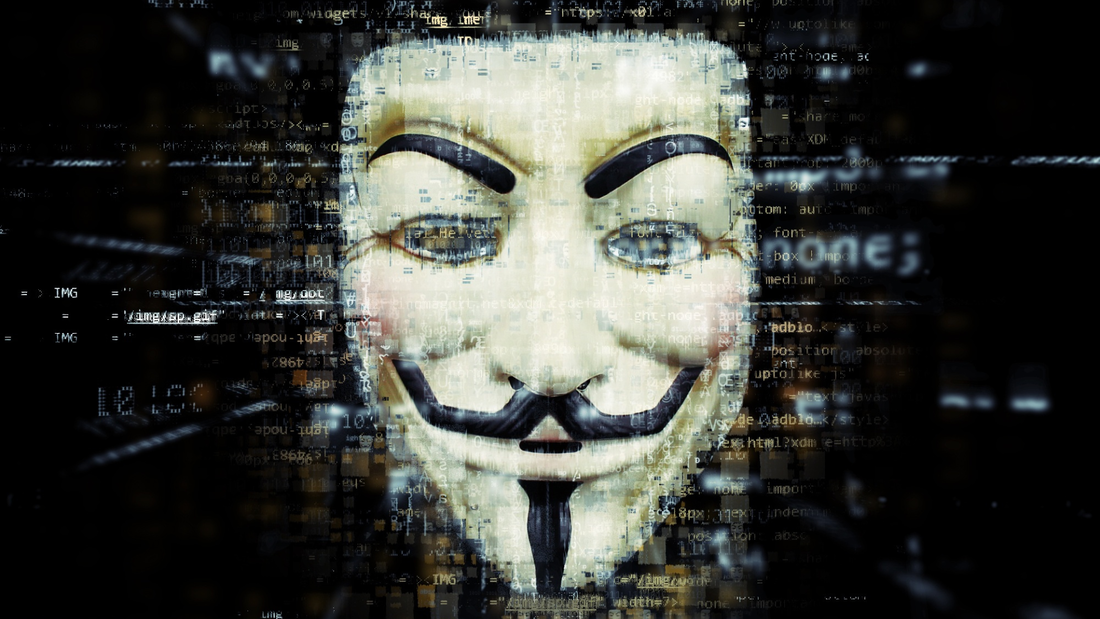




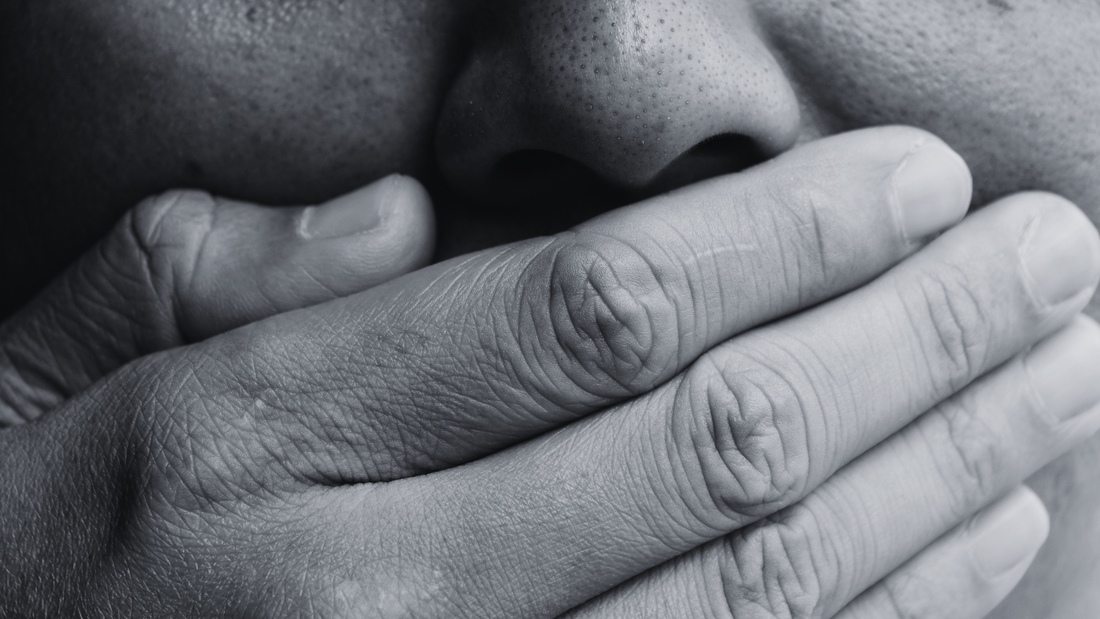
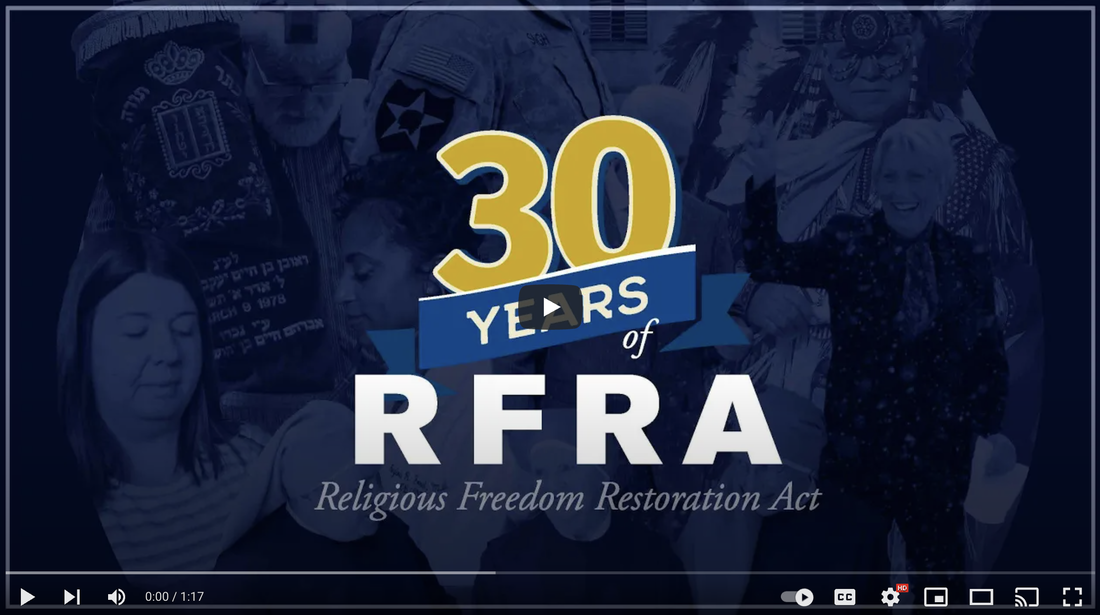
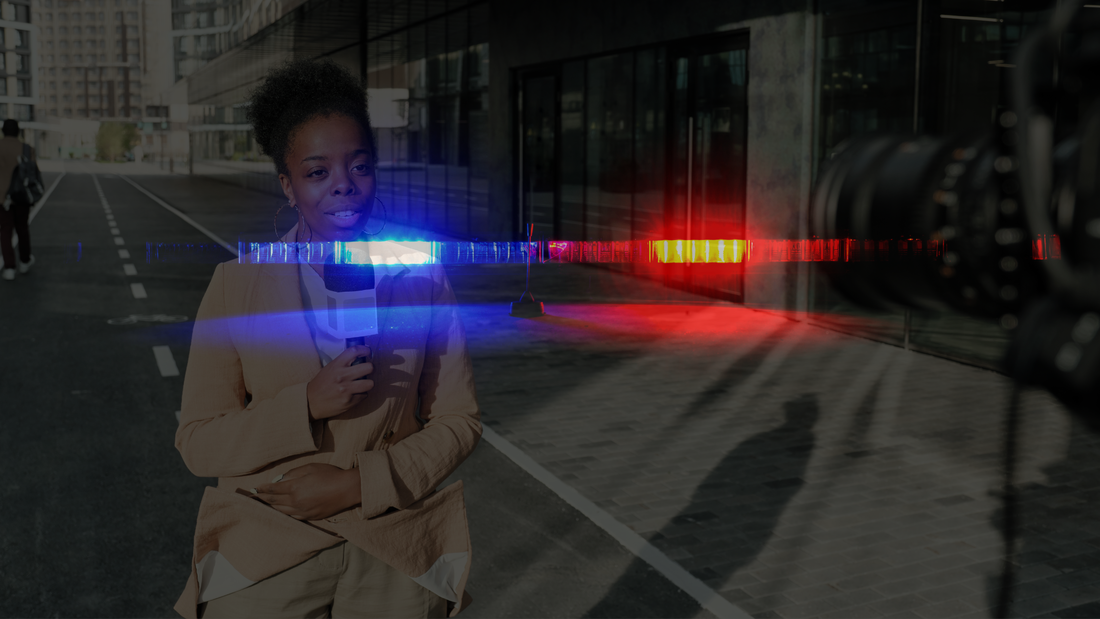
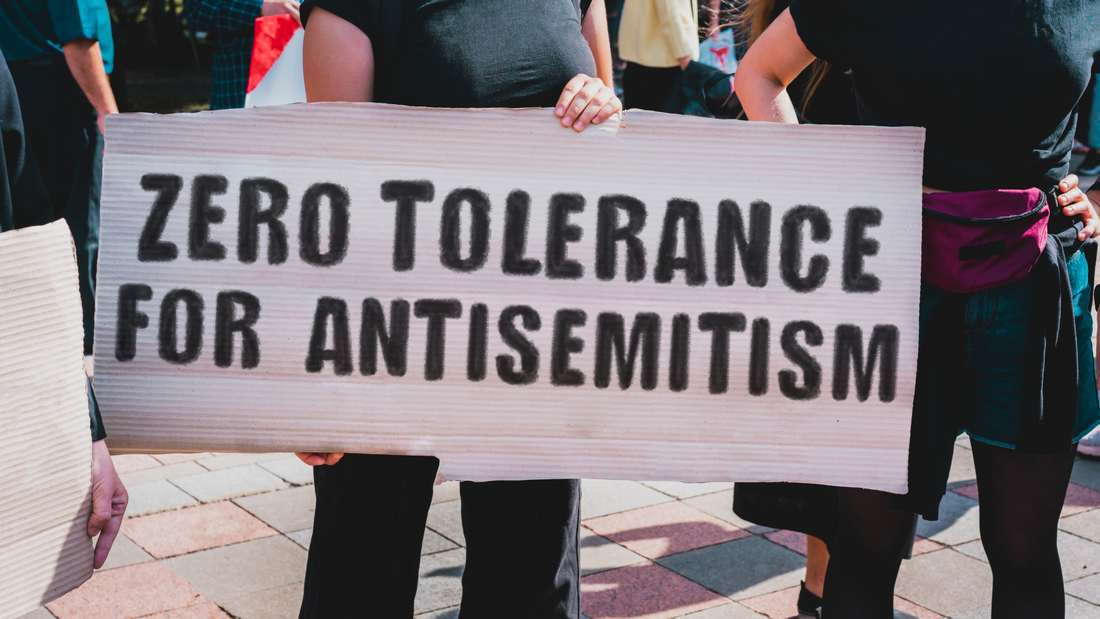
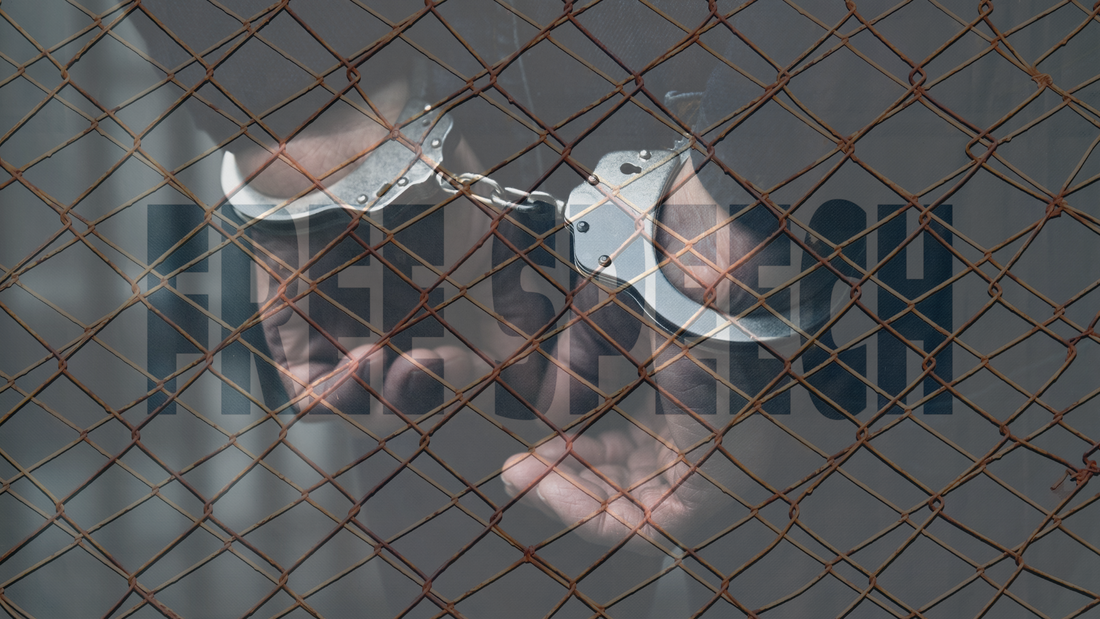
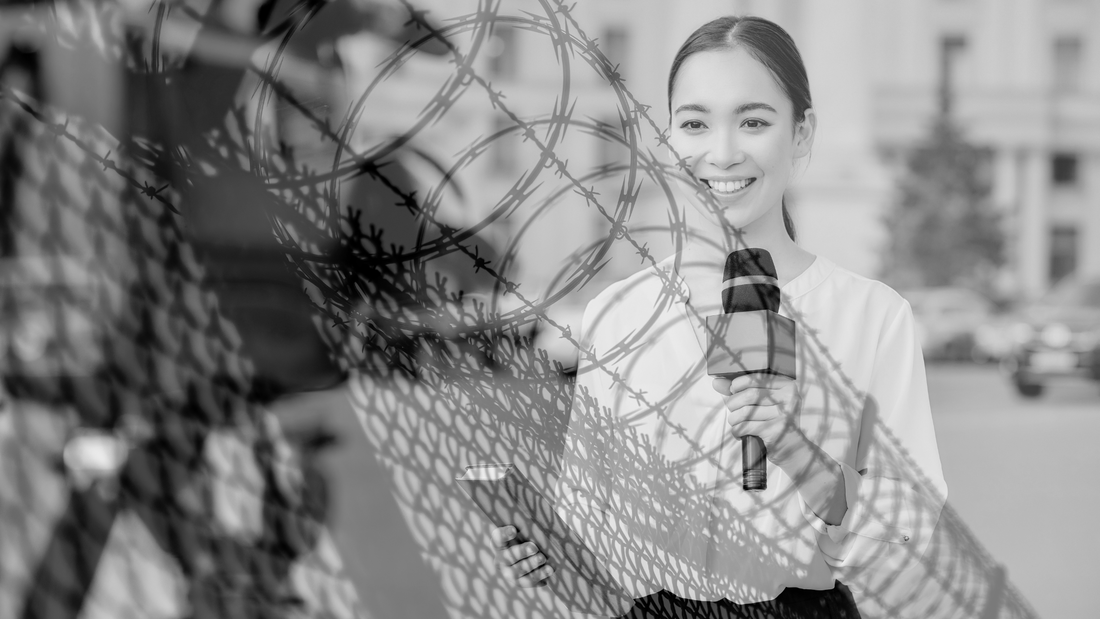
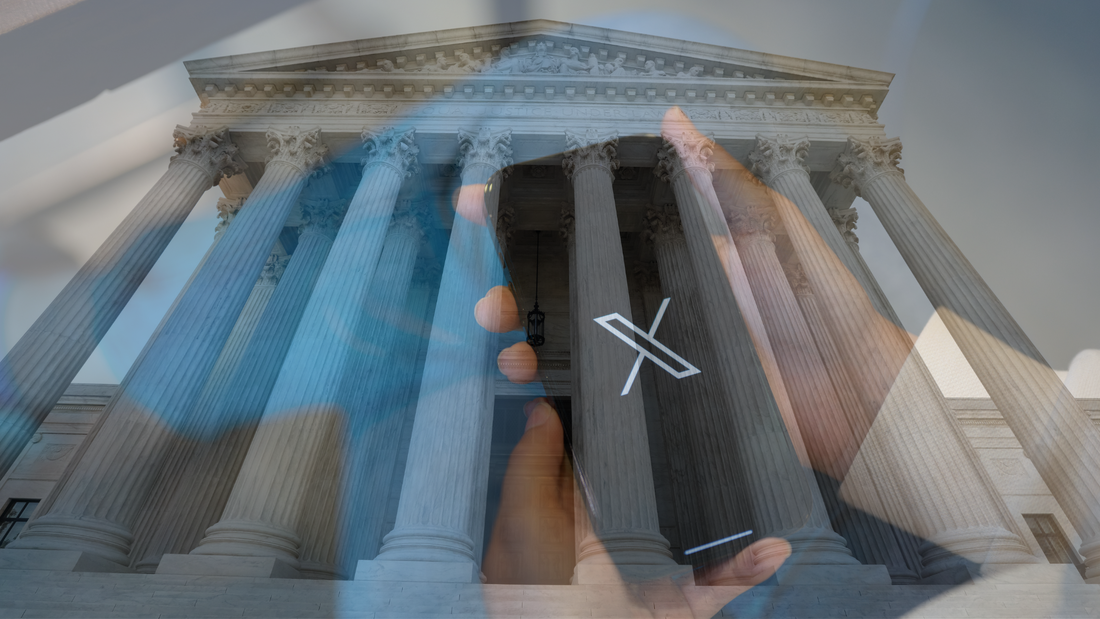


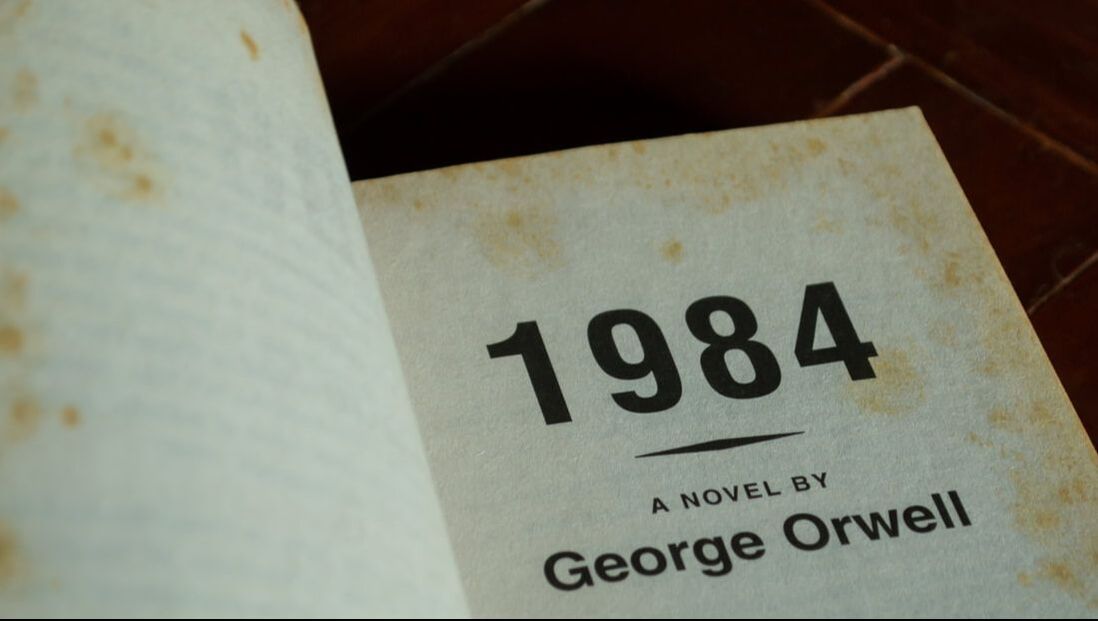
 RSS Feed
RSS Feed